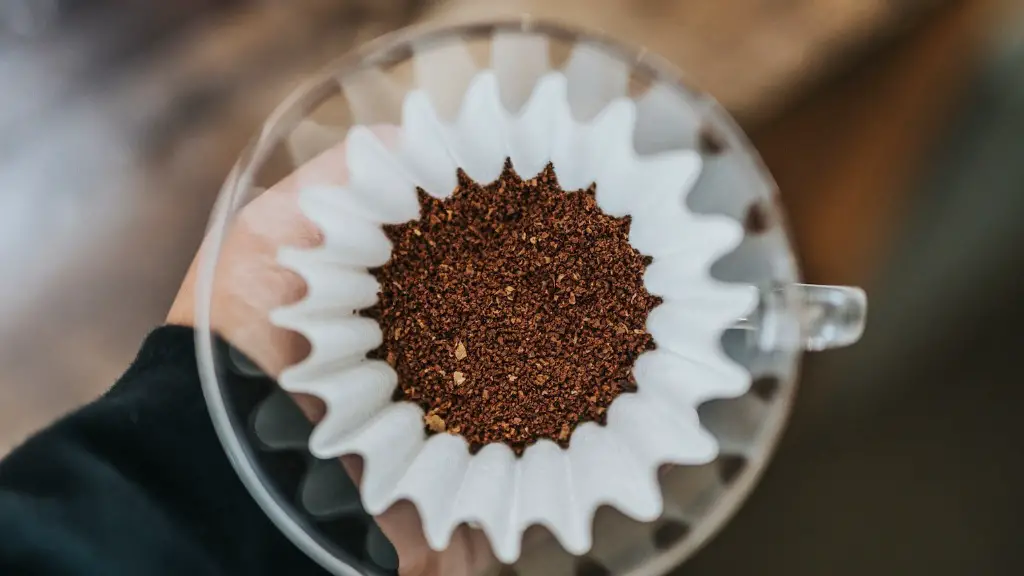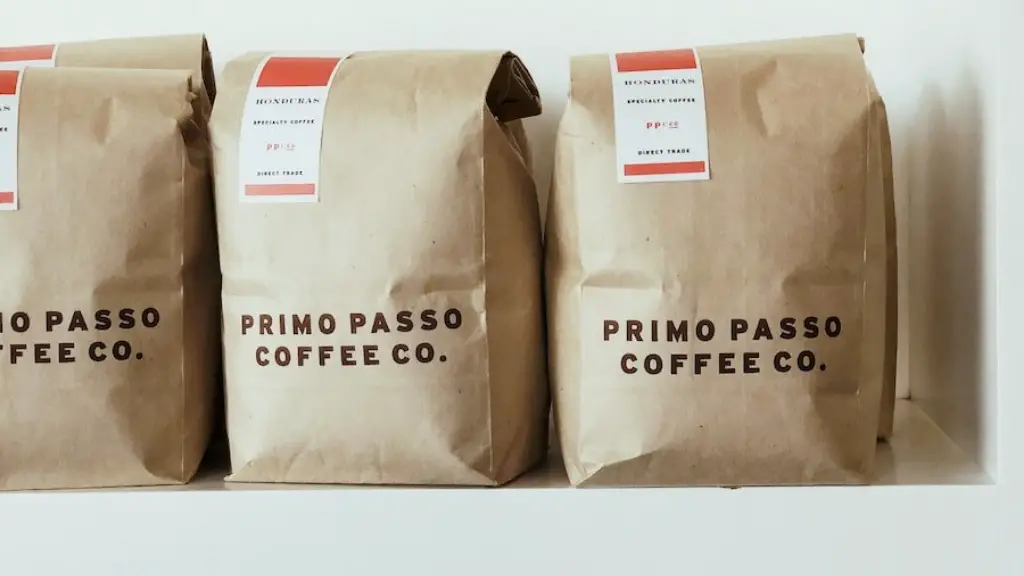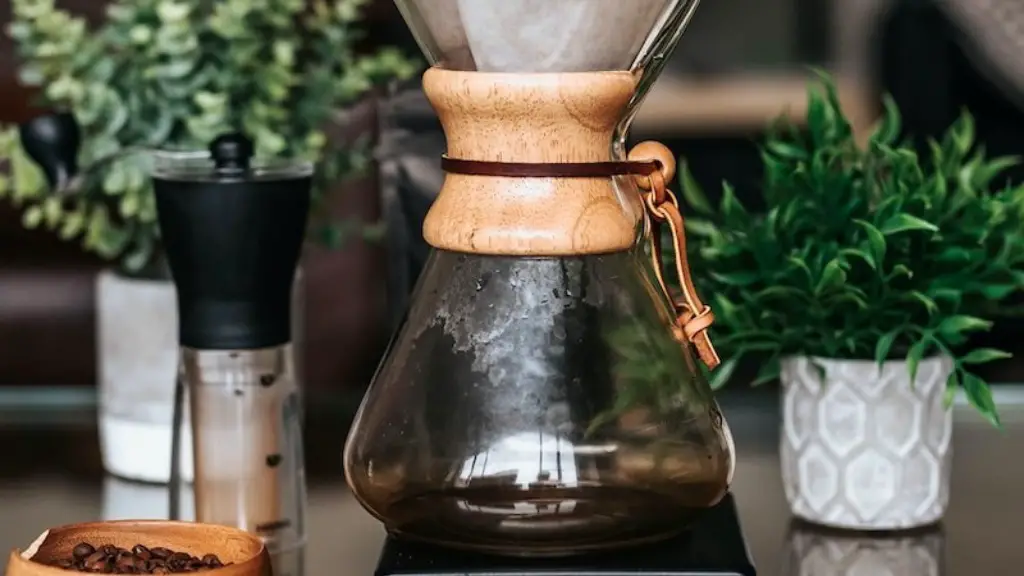What is Nitrogen and Is it Safe to Drink in Coffee?
Nitrogen is a diatomic gas with the chemical symbol ‘N2’. It makes up 78% of the Earth’s atmosphere and is an essential element for life. Nitrogen has long been used in food processing, but its use for drink production has been somewhat limited. Recently, however, the rise of nitrogen infused coffee has increased the use of nitrogen for beverage production.
Most coffee enthusiasts swear by the taste of nitrogen infused coffee. The finely atomized gas creates a smooth, velvety texture and an intense flavor profile. Nitrogen also drastically decreases the acidity of coffee, resulting in a considerably fresher and sweeter taste. Many companies are now implementing nitrogen into their coffee production process, claiming that it results in a superior cup and more enjoyable drinking experience.
However, some industry experts have raised concerns about the safety of nitrogen in coffee. Nitrogen is considered a relatively inert gas, meaning that it does not react with other substances very easily. As a result, it can remain in coffee for an extended period of time, significantly increasing the chances of exposure to harmful levels. One of the biggest dangers associated with nitrogen-infused coffee is the occurrence of toxic nitrogen dioxide.
Nitrogen dioxide is a by-product of nitrogen combined with oxygen. In enclosed spaces, it can become highly concentrated, resulting in a range of adverse health effects. It can irritate the lungs and cause skin irritation, headaches and nausea. For this reason, it is important to ensure that the nitrogen used for coffee production comes from a reputable source, and that the coffee is brewed and consumed in a well-ventilated area.
It is also important to note that, although it does reduce the acidity of coffee, excessive nitrogen can also make it taste overly bitter or flat. The best way to ensure a good cup of coffee is to use a nitrogen-infused blend that is correctly calibrated to the brewer. Too much nitrogen can also result in a deflating effect, with the drink losing most of its bubbles and flavor.
In summary, nitrogen infusion can greatly enhance the flavor and texture of coffee. However, it is important to use the right blend, as too much nitrogen can cause adverse effects. Furthermore, it is important to make sure that the nitrogen used comes from a safe and dependable source.
Nitrogen-Infused Coffee and Health Benefits
It has been argued that nitrogen-infused coffee has a range of health benefits. One of the biggest benefits is the potential for increased absorption of antioxidants. Nitrogen bubbles create a surimi effect, essentially helping to unlock the beneficial nutrients in coffee and increasing their uptake into the body. As a result, it is possible to receive more of these beneficial compounds from nitro coffee than from regular coffee.
Many experts also argue that nitro coffee could reduce the risk of acid reflux. According to research, nitrogen-infused coffee has a milder tasting profile, resulting in less contact with the stomach lining. This could help reduce the risk of reflux-related symptoms such as heartburn.
Finally, some studies have suggested that nitrogen-infused coffee could help protect against conditions such as Alzheimer’s and Parkinson’s disease. It is believed that the antioxidants present in nitro coffee could help protect against the damage caused by free radicals, ultimately reducing the risk of these neurological diseases.
Nitrogen-infused coffee is gaining in popularity, and there could be some potential health benefits associated with its consumption. However, it is important to make sure that the nitrogen used is of good quality and that it is brewed correctly. Additionally, its health benefits have not been thoroughly studied and should only be taken as speculation.
The Environmental Impact of Nitrogen-Infused Coffee
The use of nitrogen in coffee production has been increasing in recent years, raising questions about its environmental impact. One of the biggest concerns is the potential for nitrogen pollution. As nitrogen is a diatomic gas, it can escape into the atmosphere and be released into the environment. This could lead to increased levels of nitrogen pollution, which can have a range of adverse effects.
Nitrogen pollution can cause a range of ecological changes, such as acidification of soils and water bodies. It can also increase the nitrogen concentrations in plants, which can reduce their ability to take up other nutrients such as phosphorus. This can lead to poor plant growth and reduced crop yields.
Furthermore, nitrogen pollution can also damage air quality. Nitrogen compounds can combine with other pollutants to form ground-level ozone, a major component of smog. Additionally, it can react with pollutants from car exhausts and other sources, resulting in a further increase in ground-level ozone.
It is important to note that the environmental impacts of nitrogen-infused coffee are largely speculation. However, it is still advisable to be mindful of the potential impacts and use nitrogen as responsibly as possible. This includes ensuring that the nitrogen used is of good quality and is used in moderation.
The Cost of Nitrogen-Infused Coffee
The use of nitrogen for coffee production is not cheap. Nitrogenified coffee has been estimated to cost up to twice as much as traditional coffee. This high cost is due to the cost of the nitrogen itself and the more complex process of brewing and infusing the coffee.
Additionally, there are a number of additional costs associated with nitrogen-infused coffee. These include the cost of the necessary equipment for brewing and nitrogen infusion. This equipment can be expensive, and it is important to invest in reliable and well-maintained equipment in order to ensure a good quality product.
Finally, it is important to ensure that the nitrogen used for coffee production is of a high quality. Low-quality nitrogen can result in an inferior quality product, as well as potential health and safety risks. This can add additional costs to the process, and it is important to factor this in when considering the cost of nitrogen-infused coffee.
Nitrogen-infused coffee can be a great way to enjoy a smooth, rich cup. However, it is important to be aware of the costs associated with its production. Additionally, its environmental and health impacts should be taken into consideration when deciding whether or not to use nitrogen-infused coffee.
Nitrogen-Infused Coffee in the Coffee Industry
The use of nitrogen-infused coffee has been on the rise in the coffee industry, with many leading companies offering nitro-infused options. Nitro coffee is popular among coffee enthusiasts, and it is quickly becoming a staple drink in cafes around the world. Furthermore, many companies are now experimenting with different recipes and blends in order to create unique and creative drinks.
However, some industry experts have argued that the use of nitrogen-infused coffee is a trend that will eventually pass. They argue that, while it is interesting and novel, it is not a sustainable long-term option and that eventually consumers will tire of it.
It is undeniable that nitrogen-infused coffee has made its mark on the coffee industry. Whether or not it is here to stay remains to be seen. However, it is clear that it offers a unique and enjoyable drinking experience, and it is likely to remain popular for the foreseeable future.
Conclusion
Nitrogen-infused coffee has been gaining in popularity in recent years. It offers a unique and enjoyable drinking experience, with a smooth texture and intense flavor. However, there are questions regarding its safety and environmental impact, and it is important to consider these before using nitrogen for coffee production. Furthermore, it is important to note that the cost and complexity of nitrogen-infused coffee can make it a viable option for only the most dedicated coffee enthusiasts. Nevertheless, it is clear that nitrogen-infused coffee is here to stay, and it is likely to remain a popular choice for many years to come.





